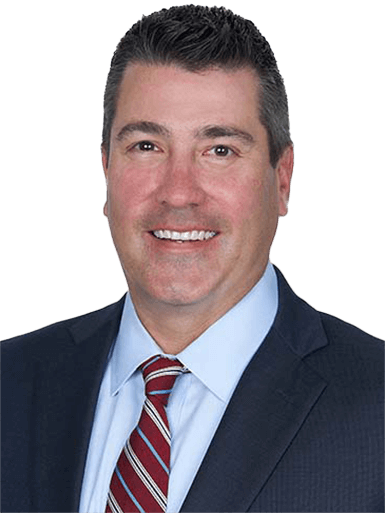Federal Shifts Signal Challenges and Support for Health Centers
As the federal fiscal year draws to a close, Community Health Centers once again find themselves in the policy spotlight. With core funding set to expire in September and new oversight proposals taking shape, health center leaders are managing a landscape defined by both renewed backing and regulatory headwinds.
Lawmakers on both sides of the aisle have voiced strong support for increased FQHC funding, a signal of the sector’s entrenched value. At the same time, recent developments—some incremental, others more consequential—highlight the importance of vigilance around compliance and financial sustainability.
A new study in Health Services Research links CHC closures to measurable increases in mortality, affirming the essential role our clients play in protecting population health. When doors to health centers close, patient outcomes suffer. Meanwhile, updates to the 340B pharmacy program and recent changes to HRSA’s grant terms and conditions signal adjustments that may affect how health centers manage compliance.
Funding Outlook for FQHCs
Congress faces a deadline to reauthorize federal funding for Federally Qualified Health Centers, with current appropriations set to expire on September 30, 2025. FQHCs now operate more than 16,000 sites nationwide and provide care for one in 10 Americans.
A bipartisan coalition of 288 House members and 57 Senators recently signed letters urging strong support for FY26 FQHC funding—an encouraging sign of continued recognition for the critical role health centers play in expanding access to primary care.
According to the National Association of Community Health Centers (NACHC), the average operating margin in 2023 was negative 2.2 percent, and nearly half of health centers reported less than 90 days of cash on hand. These constraints underscore the need for continued investment to meet rising demand and maintain care delivery despite increasing costs.
As reauthorization efforts continue, health center leaders are advocating for sustained funding that supports long-term planning, staffing, and infrastructure improvements—especially for organizations serving rural and underserved populations.
340B Program Oversight Developments
In addition to changes in funding, proposed administrative changes to key programs warrant attention. The FY 2026 budget proposal includes a potential shift of the 340B pharmacy program administration from HRSA to CMS, though total funding levels are not expected to change at this time. AAFCPAs advises that clients monitor this development, as it may affect future compliance regulations.
HRSA Grant Terms and Conditions Updates
In March 2025, HRSA issued revisions to its General Terms and Conditions affecting grant recipients, including Community Health Centers. Notably, the update removed the section on Accessibility Provisions and Non-Discrimination Requirements, which previously outlined obligations under federal civil rights laws.
While these provisions no longer appear in HRSA’s terms, the underlying legal requirements remain enforceable through other federal mechanisms, such as the Assurance of Compliance form and oversight by the HHS Office for Civil Rights. FQHCs may wish to review existing policies and procedures to ensure continued alignment with applicable federal requirements.
The update also renumbered the Conflict of Interest section, reinforcing transparency and proper disclosure in federal award administration.
Given these changes, FQHCs are advised to review the revised HRSA Terms and Conditions carefully to ensure ongoing adherence and to address any organizational updates needed for compliance. AAFCPAs is available to discuss regulatory changes and support health centers in evaluating their grant administration policies.
Managing Regulatory and Financial Pressures
Community Health Centers face growing pressure as federal funding timelines tighten and oversight evolves. Changes to 340B program administration, revised HRSA grant terms, and uncertain appropriations require leaders to remain attentive to compliance risks while addressing operational demands such as workforce shortages and rising costs.
Maintaining transparency, monitoring for potential conflicts of interest, and strengthening internal controls will remain critical. Proactive financial planning and regular review of regulatory developments may help leaders assess sustainability and maintain stability in a shifting environment.
AAFCPAs continues to monitor changes affecting FQHCs and offers insights to support informed decisions. If you have questions or want to discuss what these developments may mean for your organization, we welcome the conversation.
How We Help
AAFCPAs’ Healthcare Practice draws on more than 50 years of experience assisting provider organizations with financial, operational, and regulatory challenges. Our team includes CPAs, consulting CFOs, tax attorneys, and specialists who understand the unique needs of Federally Qualified Health Centers, behavioral health, nursing homes, home care, and physician practices. We offer proactive solutions designed to optimize reimbursements, ensure compliance, and strengthen internal controls, helping organizations navigate evolving requirements with confidence.
These insights were contributed by Courtney McFarland, CPA, MSA, 340B Apexus Certified Expert™, Matthew Hutt, CPA, CGMA, Partner, Charles Webb, CPA, CHFP, Partner, Robert Constantino, CPA, MSA, Director, and Pauline Legor, CPA, MBA, Director, Healthcare Practice.
Questions? Reach out to our authors directly or your AAFCPAs partner. AAFCPAs offers a wealth of resources for those in the healthcare industry.
Subscribe to get alerts and insights in your inbox.





